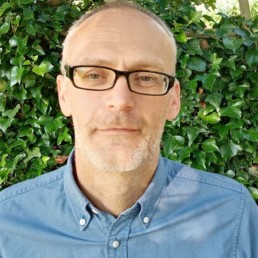
Written by Steve Brace
Head of Education and Outdoor Learning at the Royal Geographical Society. He started his career as a geography teacher and had previously led the education programmes for ActionAid and the Commonwealth Institute.
Studying geography enables young people to better understand the world’s people, places and environments, the interactions between them – from the local to the global scale.
As Ofsted notes, this requires teachers to critically reflect on the imagery, data and attitudes they portray to pupils, so that geography can accurately represents the nature of the world’s people, communities, economies, diversities and experiences (Ofsted 2021). And, as our world continues to change so must geography. This makes the subject such a fascinating and challenging one to teach and why geography has an important role in supporting equality, diversity and inclusion (EDI).
Geography has one of the best gender balances of all subjects and over the last 10 years its GCSE cohort has become much more diverse. Since 2010 its GCSE entries have increased by over 50% reaching a record high of 282,000 candidates last summer. It is welcome that this growth has come predominantly from those groups who were previously less likely to study geography: Black, Asia and minority ethnic pupils; pupils with lower prior attainment; those from low-income backgrounds; and/or pupils studying in comprehensive schools (RGS 2020)
However, the positive change at GCSE is not yet being seen at A Level and the narrowing of intake continues further at university. This is despite the positive outcomes that geography provides for its graduates, who experience above average rates of graduate employment and ‘top 10’ graduate salaries.
It is recognised by the colleagues across the subject community that more work is needed to better support EDI in relation to the curriculum, resources, the teaching workforce and how the subject can support young peoples’ career aspirations. Examples of current activities include:
- Puttick and Murrey’s research (2020) which identified that the ‘piecemeal approach to geographies of race and racism is insufficient for educating students for the 21stC’
- The scholarship shared through the RGS’s Decolonising geographical knowledges conference
- The Higher Education community’s support for accessible and inclusive fieldwork and pride in the field
- The advocacy and work of Black Geographers
- And teacher led initiatives such as Decolonising Geography , Inspirational Geographers and – alongside many others – that of Shiv Das, Hina Robinson and Hafsa Bobat
There are also opportunities to reduce the gap between geographical research and the classroom, such as through the RGS’s Ask the Geographer podcast which share the work of research geographer with teacher and their pupils. Schemes-of-work can also be updated through the incorporation of new research findings, such as the resources based on the Migrants on the Margins research programme which investigated the lives of migrants in Colombo, Dhaka, Harare and Hargeisa. Such resources are further complemented by the wider contributions of many others including Worldmapper, Gapminder and Dollar Street.
Consideration needs also to be given to not only to what is being taught, but also who is teaching geography. This situation is explored in I didn’t have any teachers that looked like me which shares the perspectives of Black, Asian and minority ethnic trainee and early career geography teachers. And they recommend the need for EDI to be held as a responsibility for all geography teachers, as well as the wider subject community and its institutions.
Geographers can also critically reflect on the subject’s development through Britain’s period of Empire and imperialism, how the subject helped create and share stereotypical views about the world and the continuing legacy of these. For example, the very first volume of the Proceedings of the Royal Geographical Society (1857) an author ascribes the Moroccan town of Sala’s decline to “ignorance, despotism and Mohammedanism”. However, dissenting voices – including those of African descent – can be found in geography’s history, such as the 19thC testimony of James Africanus Horton of Sierra Leone and Edward Blyden of Liberia. Both were critics of Eurocentric stereotyping of African cultures and provide an early precursor to Chimamanda Adichie’s warning of a single story. Now in the 21stC there an imperative to rediscover geography’s diverse voices some of which can be seen in the RGS’s Hidden Histories of Exploration which highlighting the important contributions of African, Asian and Inuit people
As the geographer Professor Chris Philo recently said – geography invites both ‘earth-writing’ – words to evoke worlds, and ‘earth-righting’ – actions to improve worlds. For this to be achieved geography needs to become more equal, diverse and inclusive. Many within the subject have been setting a course to help achieve this, though this journey has still significant distance to travel.

